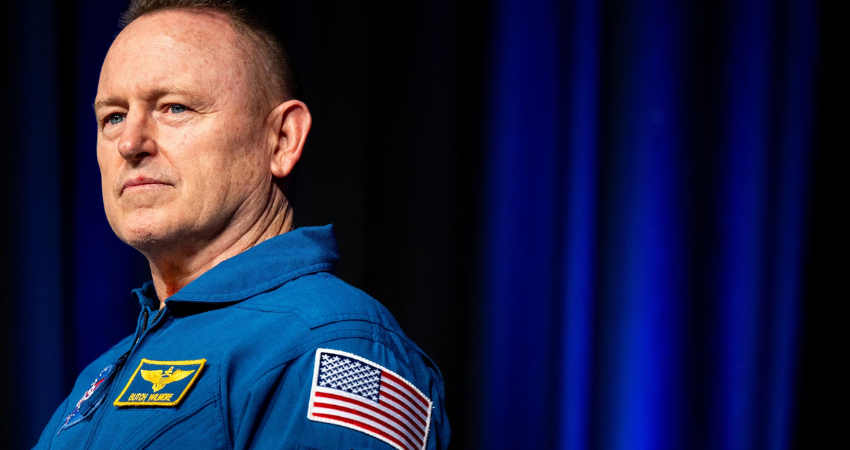If you haven’t heard by now, NASA astronauts Butch Wilmore and Suni Williams, who were stranded on the International Space Station (ISS) for nine months due to a failed Boeing spacecraft, have finally returned safely to Earth. But what many may not know is that throughout his extended stay in space, Butch Wilmore remained steadfast in his faith—attending virtual church services from orbit.
In a recent press briefing in Houston, Wilmore shared how maintaining virtual fellowship with Providence Baptist Church—his home church in Pasadena, Texas—wasn’t just a routine but a necessity. When asked why it was so important for him to continue attending services while in space, Wilmore’s response was clear: “The word of God continually infilling me—I need it. My pastors are the finest pastors on—or off, in this case—the planet. And to tie in and worship with my church family was vital. I mean, it’s part of what makes me go.”
He described how his faith kept him grounded in the vastness of space, saying, “It was part of what I needed as a believer in Jesus Christ to continue that focus. It assisted me day in and day out because I need that fellowship, even though it’s fellowship from afar.”
With sincerity, Wilmore reflected on how faith shapes his perspective. “A human life is bound up in many things, and for me, it’s faith in my Lord and Saviour—Jesus Christ. He is the end all, be all. He forgives us. He teaches us. The Bible speaks about being content in all situations because He is working out His plan and His purposes for His glory and our good. And I believe that because the Bible says that.”
For Wilmore, this trust in God doesn’t mean life is without hardship. “It doesn’t mean always happy, it doesn’t mean there is no pain, but it does mean being content and knowing that God’s in control, working out His plan and purpose.”
Some might wonder why a loving God allows sorrow and suffering. Wilmore addressed this directly: “He’s working out His plan and His purpose. I mean, who’s lived a life without pain? That’s the nature of existence. Who’s lived a life without sorrow? Who’s lived a life without challenges? It grows us, we learn from it, and that’s the focus I try to take from it. What’s the Lord trying to show me?”
Wilmore has attended Providence Baptist Church for 17 years, where he also serves as an elder. While in space, he also streamed services from Grace Baptist Church in Mount Juliet, Tennessee, where a close friend is a pastor.
Faith in the Face of Isolation
Wilmore’s experience speaks to a broader question: How does faith sustain people in extreme situations? Whether stranded in space, imprisoned, or enduring personal trials, belief in a higher purpose has long been a source of resilience for many.
Historically, astronauts have often turned to faith during their missions. Apollo 15 astronaut James Irwin, after walking on the moon, felt so profoundly impacted that he dedicated his life to Christian ministry. Colonel Jeffrey Williams who accumulated a record-breaking total duration of 534 days in space, spoke about how photographing Earth from outer space deepened his faith in God and appreciation for His works. Frank Borman, commander of Apollo 8, famously read from Genesis while orbiting the Moon, moved by the enormity of creation. Even Yuri Gagarin, the first human in space, reportedly felt a deep spiritual awe during his historic flight.
Faith has also been a lifeline for those in dire earthly circumstances. Holocaust survivor Viktor Frankl, in his book Man’s Search for Meaning, observed that those who maintained a sense of purpose—whether through faith or a deep personal mission—were more likely to survive unimaginable suffering. Similarly, persecuted individuals throughout history have clung to faith as a source of strength when all else was stripped away.
Wilmore’s experience aboard the ISS, though far from the life-or-death struggles of history, highlights an essential truth: faith is not about circumstance—it’s about connection. Whether on Earth or in the vastness of space, for those who believe, faith is an anchor that transcends distance and isolation.
A Question for Us All
If an astronaut floating miles above the Earth can stay connected to his faith, what does that say about our own ability to prioritise spirituality in our daily lives?
Perhaps the real question isn’t whether God is present in the vastness of the universe, but whether we are willing to seek Him wherever we are.











